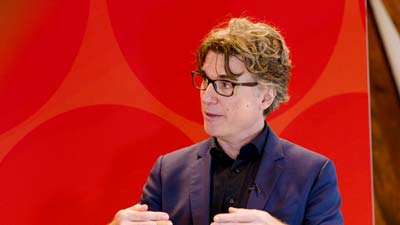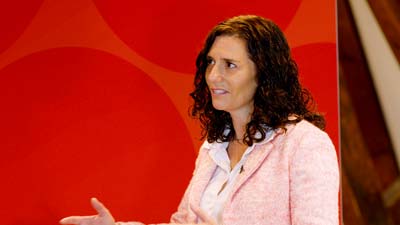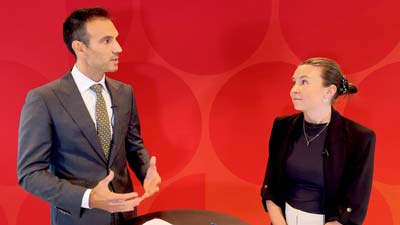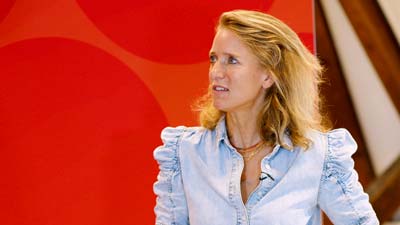James Gard: It's Sustainability Week here at Morningstar. So, I'm delighted to welcome to the studio Yolanda Courtines. She is the Portfolio Manager of the Wellington Global Stewards Fund. Welcome.
Yolanda Courtines: Thank you.
Gard: So, can you tell me a bit about the funds and why you've decided to focus specifically on stewards rather than sort of wider sustainability?
Courtines: So, this is a core strategy. We are low beta, low turnover, and most importantly, we have a long-term time horizon, and we think stewardship matters more the longer you extend that time horizon. And we believe that good stewards allow us to focus on companies that are really being responsible in how they're managing the company rather than ending up in accidental tourists in the ESG space.
Gard: Sure. So, how would you define stewardship? I mean, I think I understand it in the abstract as a part of wider ESG investing, but how would you define it practically?
Courtines: So, for us, stewardship is about preserving the value of a company for future generations and building on that value over time. So, we have a burden of responsibility as stewards of the fund, but we're really looking to identify strong corporate stewards, and I would put that into five key categories. So, that's a strong management team. That's absolutely necessary. Any quality fund would focus on that. But we put particular emphasis on owning a company with a strong and empowered board as well. Boards are there for the long-term and focus on talent and succession planning, and they're looking around corners at important themes like climate and cyber. We then want strong capital allocation and a long-term mindset and finally and critically that willingness to balance the needs of all stakeholders.
Gard: Sure. Thanks. That's a very excellent and thorough definition. So, are there certain regions and sectors that are better at being stewards or producing stewardship leaders than others?
Courtines: So, we seek to be balanced in terms of our exposure both to geographies and to sectors. There are certainly some countries and sectors that are ahead on their sustainability journey, but I think it's important to recognize that the journey to better is happening broadly around the globe. And so, Europe has an incentive to have energy independence and they're probably leaders in this space. The U.S. has a few more tensions around their natural gas industry. But I think we're seeing importantly a commitment towards change even in markets that have historically been laggards like Japan for example where there's really strong progress in corporate governance and a much better commitment to strong capital allocation.
Gard: Sure. Yeah. So, it's not just the obvious countries that are better than others. It's a sort of broader spread than I would imagine. So, as a final question, we read sometimes about ESG fatigue. How as a fund manager would you counter that sort of pushback to the sustainable investing narrative?
Courtines: I mean, I can definitely appreciate where that sentiment comes from. I think there's a deluge of information in the market and part of that is a response to some really important transitions that are underway whether that's the energy transition or just the digital transformation that's happening at companies. And it's causing us to look at different data sets and want more information. But I think companies, some of them, I think are early in this journey are a little misguided in wanting to prove that they're doing everything for everyone. And I think strong sustainability is about trade-offs. It's about making really difficult decisions and finding that balance that will ultimately protect all stakeholders over the long term. So, I think it comes back to just finding that authenticity. I think we're past that first stage of transparency. We're moving into more ambition. And our role as portfolio managers is to think about the credibility piece and understand who is being credible in that journey.
Gard: Sure. So, it sounds like it's a question of being honest with investors and stakeholders about the compromises that need to be made in this climate transition.
Courtines: Absolutely.
Gard: Fantastic. Well, thanks so much for your time, Yolanda. For Morningstar, I'm James Gard.





























